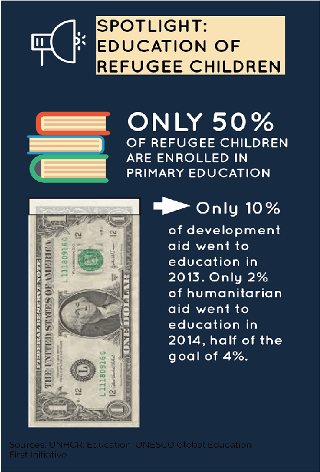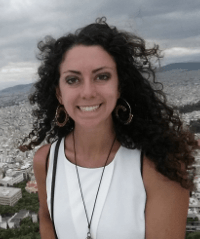by Jacquelyn Pavilon
Seven-year-old Sami* puts a toy gun to his younger brother’s head. He play-shoots his other siblings as they cower to the ground. Pulling out a phone, he points to a photo of a soldier: this, he says, is who he wants to be when he grows up. Sami* has seen nothing but war for most of his life. While his past is already written, his future is not.
With upwards of 65 million people displaced worldwide, trauma is not an exceptional case; it is an epidemic. With limited international resources and emergencies on the rise, aid for refugees often only addresses what is viewed as necessity. Yet in the whirlwind of providing food, finding shelter, and filling out documents, the most detrimental aspect of the refugee experience is often overlooked: the psychological component. Fleeing war, oppression, and persecution, refugees—especially children—are at high risk for psychological trauma. Amidst seemingly endless uncertainty, education can provide protection and stability both to children and adults alike.
*Name has been changed.
About the Author
Jacquelyn Pavilon is a first year PhD candidate in the Department Economics at Georgetown University. In 2014, she began work in the Communications Department at the headquarters of the Jesuit Refugee Service in Rome, an organization with the goal to accompany, serve, and advocate for refugees across 45 countries and all faiths. As the International Communications Coordinator she traveled to various countries to report on the situation of refugees. In 2015-2016 she helped launch a $35 million campaign called Mercy in Motion specifically commissioned and endorsed by Pope Francis to provide 100,000 additional refugees with education by 2020. She plans to focus her research on labor and migration.

